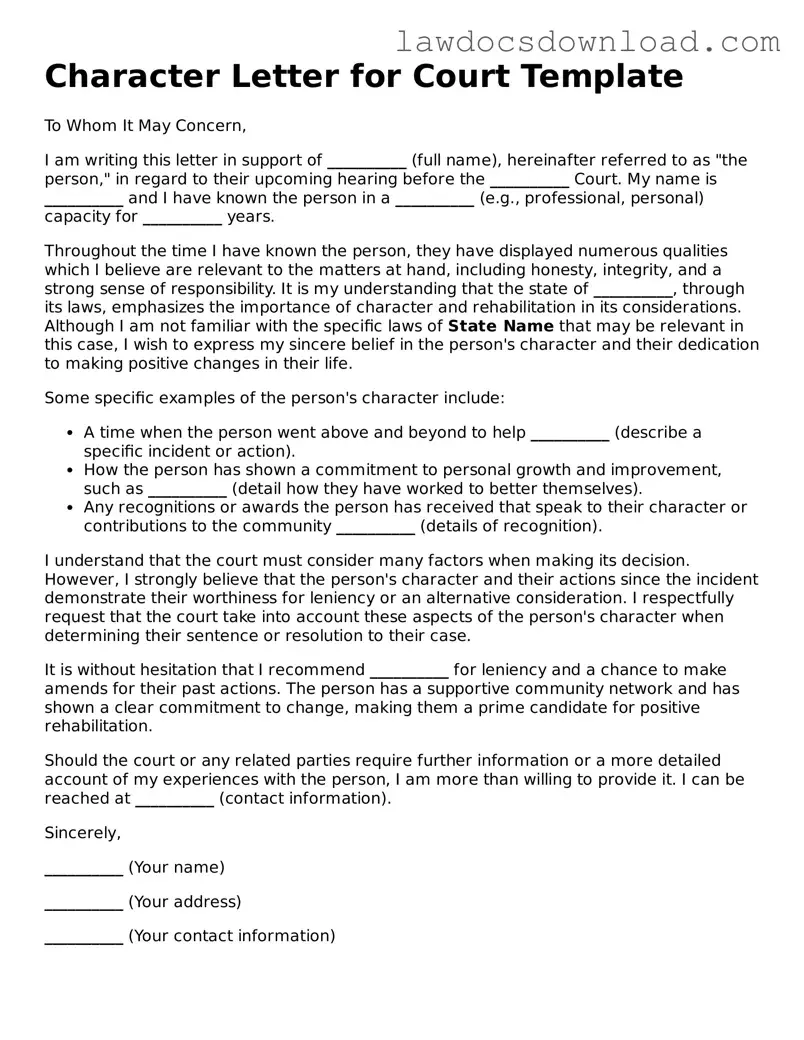Blank Character Letter for Court Template
A Character Letter for Court is a document written by someone who knows the defendant personally and wishes to speak on their behalf, highlighting their positive qualities and behaviors. It is used by the court to gain a better understanding of the defendant's character, which can be crucial in the decision-making process. Despite the form file being null, the impact of a well-crafted character letter cannot be underestimated in legal proceedings.
Launch Character Letter for Court Editor Here

Blank Character Letter for Court Template
Launch Character Letter for Court Editor Here

Launch Character Letter for Court Editor Here
or
Free Character Letter for Court
Get this form done in minutes
Complete your Character Letter for Court online and download the final PDF.